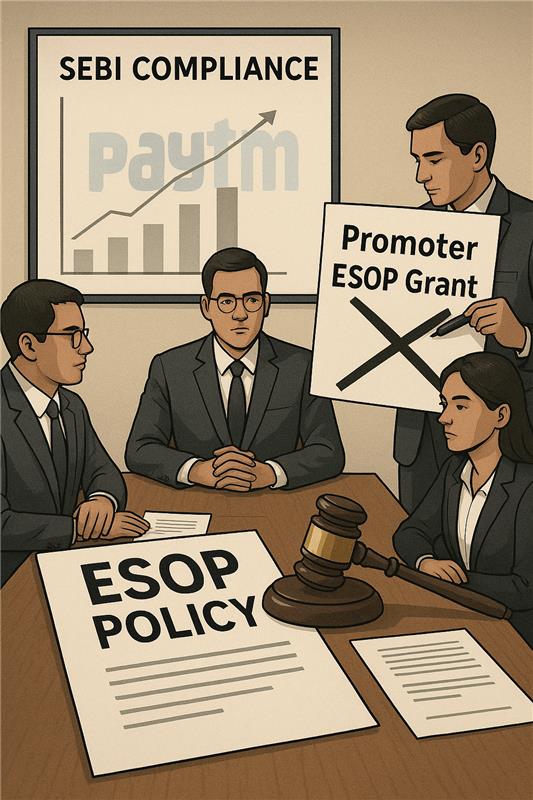Enforceability of Restrictive Covenants in Employment Contracts under Indian Law
Employment contracts often contain restrictive covenants designed to protect an employer’s business interests, such as non-compete, non-solicitation, and restrictions on engaging with clients or competitors. However, Indian law adopts a strict stance on such restraints, particularly after the termination of employment. This article explores the enforceability of these covenants and offers practical recommendations for employers to safeguard their interests without falling foul of legal restrictions.
- Enforceability of Restrictive Covenants
Under Indian law, the settled position is that restrictive covenants are enforceable only during the term of employment, provided they are reasonable and aimed at protecting legitimate business interests. Post-employment restraints, however, are generally void and unenforceable under Section 27 of the Indian Contract Act, 1872, as they constitute a restraint of trade.
This means that any clause, whether styled as a non-compete or a non-solicitation provision, that directly or indirectly curtails an employee’s right to pursue lawful trade, profession, or livelihood is likely to be struck down. That said, the enforceability of such clauses depends on the facts of each case, and courts may interpret them differently based on scope, duration, and necessity.
- Prohibition on Seeking Employment with Clients or Competitors
A common concern for employers is employees moving to clients, vendors, or competitors, post-termination. However, employment contracts must not include absolute prohibitions preventing employees from accepting such opportunities after leaving. Any clause that explicitly bars employees from taking up employment with third parties would amount to a direct restraint on their right to livelihood and would almost certainly be invalidated by Indian courts.
Similarly, blanket restrictions on competitive activities post-employment are unenforceable, as they contravene Section 27 of the Contract Act.
- Non-Solicitation of Clients
Compared to non-compete clauses, non-solicitation provisions are treated more flexibly. If narrowly drafted in terms of scope, duration, and applicability, they may not be considered an unlawful restraint of trade. Courts have been more inclined to uphold such clauses where they specifically prohibit former employees from soliciting or attempting to poach the employer’s existing or prospective clients with whom the employee had direct dealings.
Thus, while employers cannot bar employees from working elsewhere, they may validly restrict them from misusing professional relationships cultivated during their tenure.
- Recommendations for Employers
While Indian law restricts post-employment restraints, employers can strategically draft clauses to protect legitimate interests without overstepping legal boundaries. The following approaches are recommended:
(a) Protecting Business Relationships
Instead of direct restrictions, frame clauses around preventing interference with business relationships:
“The Employee shall not, during the term of employment and for a period of [●] months following cessation thereof, directly or indirectly interfere with or attempt to interfere with the Company’s business relationships with its clients, customers, suppliers or business partners, in any manner that may adversely affect the Company’s business interests.”
This approach avoids a bar on employment but safeguards ongoing business ties.
(b) Preventing Harmful Conduct
Rather than prohibiting competitive engagement, focus on conduct that harms business interests:
“The Employee shall not, during the term of employment and for a period of [●] months following termination, engage with any competitor of the Company in a manner that is likely to cause harm to the Company’s commercial interests, divulge sensitive business information, or adversely affect the Company’s competitive standing in the market.”
This targets harmful actions instead of restricting career choices.
(c) Confidentiality and Trade Secrets
Courts have consistently upheld restrictions on the misuse of confidential information and trade secrets. Employers should include robust confidentiality provisions that survive termination:
“The Employee shall not, at any time during or after their employment with the Company, use, disclose, or exploit any confidential information or trade secrets of the Company for any purpose outside the purpose of performing services for the Company, including for the benefit of any competitor, whether directly or indirectly.”
(d) Transparency Mechanism
As an alternative, employers can encourage open disclosure of competitive offers:
“The Employee shall, during the term of employment and for a period of [●] months thereafter, inform the Company if they receive any offer of engagement from any of the Company’s existing clients or direct competitors, and shall provide the Company an opportunity to respond to or match such offers prior to accepting such offers.”
This balances employee freedom with employer protection, reducing legal risks while promoting a culture of openness.
Conclusion
Indian law strongly favors employee mobility and treats post-employment restrictive covenants as void under Section 27 of the Contract Act. However, employers are not without protection. By carefully drafting clauses that emphasize the protection of legitimate business interests, such as client relationships, confidential information, and competitive integrity, employers can strike a balance between legal compliance and commercial security.
The key lies in avoiding blanket prohibitions and instead adopting narrowly tailored, business-focused language that stands a stronger chance of judicial enforceability.
Post a comment Cancel reply
Related Posts
IT Consulting Professional Services Agreements Drafting Services at Kontract Genie
Clear, Enforceable Contracts for Consulting, Advisory & Technical Services In India’s fast-paced digital economy, IT…
The Promotion and Regulation of Online Gaming Act, 2025
The Indian Parliament has introduced a new law to promote good online games (like e-sports,…
MCA’s New Mandate on POSH Act Compliance: What Companies Must Know
In a significant move towards fostering safer workplaces and enhancing corporate transparency, the Ministry of…
ESOP COMPLIANCE REQUIREMENTS IN INDIA: LESSONS FROM THE PAYTM CASE
Employee Stock Option Plans (ESOPs) have emerged as a pivotal tool for aligning employee incentives…






